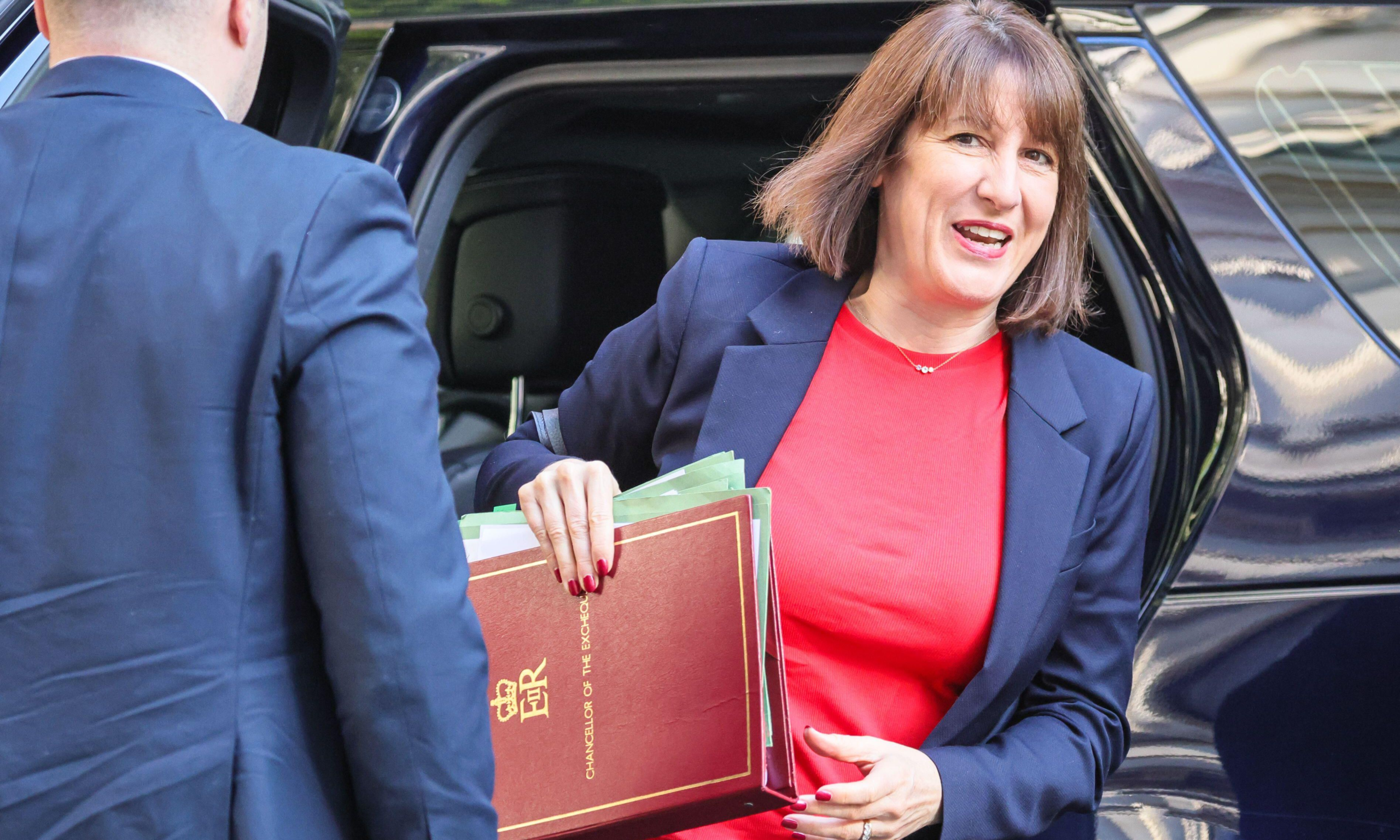The report has been released ahead of Rachel Reeves, the chancellor of the exchequer, delivering her autumn budget on 30 October
Photo: Imageplotter / Alamy Stock Photo
An influential UK think tank—the Fabian Society—is calling for children to spend at least 10% of their school week on arts activities, reversing the decline in arts provision within Britain’s state education system over the past decade.
In a new report published today, Arts For Us All, the Arts and Creative Industries Policy Unit at the London-based society also recommends undertaking a comprehensive review of arts funding—covering funding bodies such as Arts Council England, the National Lottery and the National Endowment for Science, Technology and the Arts (NESTA)—to “unlock new coalitions and approaches”. In another far-reaching move, the organisation would like to implement a “progressive city tourism charge” on tourist accommodation across the UK to raise extra funding.
The Fabian Society, founded in 1884, is Britain’s oldest political think tank. The society is at the forefront of developing political ideas and public policy on the left and is constitutionally affiliated to the Labour party, says a society statement.
Arts, culture and heritage must be placed at the heart of the government’s project of national renewal, says the society, which highlights that the creative industries are worth £126bn to the UK economy. The chancellor of the exchequer, Rachel Reeves, will deliver the autumn budget, 30 October, with which the government will set out its fiscal plans for all departments including the Department for Culture, Media and Sport (DCMS). In 2022-23, the UK government allocated £2.3bn to the DCMS.
A government spokesperson says:"We are determined to ensure that arts and culture are no longer the preserve of a privileged few. We are carefully considering how we fund arts and heritage organisations in this country and unlock more creative opportunities. We have launched a review of the school curriculum to ensure all children and young people benefit from creative subjects such as music, art and drama.”
The Fabian Society’s new report focuses on three areas. “Arts and Culture in Schools” puts forward measures such as a childhood arts guarantee called “11 by 11”, which involves 11 arts and cultural experiences that every child should enjoy by the time they are 11. This policy, the report says, would remove the “class ceiling” preventing many children from poorer backgrounds from participating in the arts. “Visual literacy”, meanwhile—critically observing and articulating what one sees—should also be incorporated into the national curriculum, say the report authors, who add that the study of intangible cultural heritage should also be an integral part of education programmes.
Alison Cole, a former editor of The Art Newspaper, was appointed the director of the Fabian Society Arts and Creative Industries Policy Unit last year. She says: “[The report] calls on the government to recognise the arts as some of the most powerful engines of change: raising spirits, enlarging horizons, fuelling innovation and driving significant economic growth.”
The second part, “The Arts Where We Live”, focuses on expanding access to the arts because “14 years of austerity [under the former Conservative government] have made access prohibitive to all but the well off”, says the pamphlet. Recommendations include introducing a British culture pass for all residents of the UK on their 16th birthday, as well as a policy that makes all high-resolution images of works that are owned by nationally funded museums and galleries, and out of copyright, available free of charge.
The final section, “Paying for the Arts”, tackles the contentious topic of how the culture sector is funded, with the report arguing that “this does not need to involve vast increases in government spending, but smarter approaches from both government and the sector”. The proposed review of Arts Council England (ACE) would look into its position as a funder of arts organisations and as “a facilitator of expertise and partnerships”, examining for instance how ACE has adapted to supporting the museums and libraries sectors, since it began doing so in 2010.
How the National Lottery allocates money to good causes has come under scrutiny lately; the society proposes a redeployment of such funding with a temporary adjustment of the allocation to Arts and Heritage by 5%. Currently 20% of National Lottery funding is spent on the arts and 20% is spent on heritage; under the new proposals, both would receive a 2.5% boost to address the major problem of crumbling cultural and heritage buildings and their future sustainability. The report also recommends that all major capital fundraising projects receiving lottery support have an endowment built into their funding targets to ensure every grant is self-sustaining.
The planned tourism charge, to be implemented by city mayors, would go into a central funding pot locally administered to support cultural infrastructure and “place-making”, or enriching areas through the arts. “The charge should be implemented on a percentage-based model. More expensive rooms generate more income, and if applied nationally on all hotels and tourist accommodation at the 3% rate, the levy would generate £600m per annum, which is the approximate culture spend of Los Angeles,” says the report.

